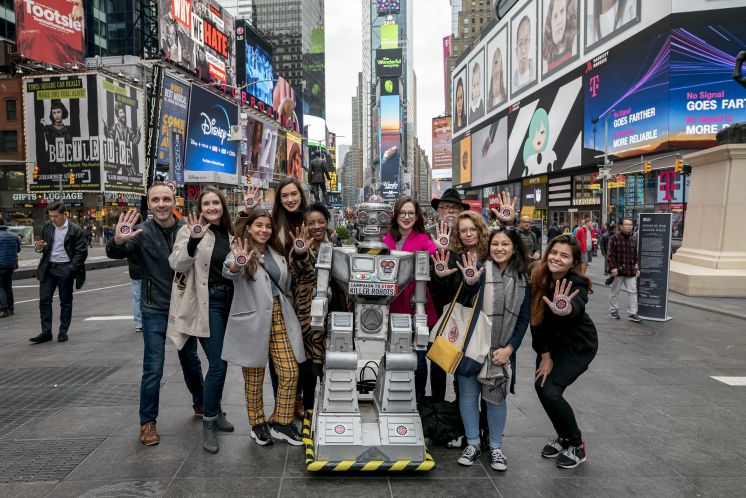Opening remarks at First Committee side event “The urgent need for a treaty to retain meaningful human control over the use of force”
Ms. Izumi Nakamitsu
High Representative for Disarmament Affairs
New York
21 October 2019
Excellencies,
Ladies and Gentlemen,
Thank you for the invitation from the Campaign to Stop Killer Robots to provide brief remarks on this important topic at the opening of your event.
The issue of lethal autonomous weapons systems (LAWS) is one of the utmost importance for the Secretary-General. He has sought to highlight the dangers of allowing the application of force beyond human control on the world’s most prominent stages, including, in 2018, during the high-level segment of the General Assembly.
This is because, as the Secretary-General has now said on several occasions, machines with the power and discretion to take lives without human involvement are “politically unacceptable, morally repugnant and should be prohibited by international law.”
This is a strong statement, but I don’t think it is a controversial one. In fact, the discussions and outcomes at the Convention on Certain Conventional Weapons (CCW) on this topic have revealed a strong convergence around the notion that the use of force must reflect and be directed by human intention.
The 11 guiding principles affirmed by the CCW Group importantly begin the process of giving normative weight to this and other areas of convergence. The formulation of these principles on the basis of consensus is an achievement that should be celebrated.
Undoubtedly, however, more work is needed to ensure that, in the face of ever-more sophisticated technology, human control over the use of force is always retained. We are increasingly seeing reports of new weapon concepts and systems being studied, developed and tested that incorporate autonomy into their critical functions. In the absence of common standards and understandings on how international law applies, we face a risk that we will one day see the operation of autonomous weapon systems that cannot be used in conformity with humanitarian principles or the dictates of public conscience.
I am heartened by the substantive consensus outcome reached at the CCW this year, and in particular the signposts that outcome provides for real and tangible progress over the next two years. Importantly, it calls for the Group to work on aspects of the normative and operational framework on LAWS. This year’s outcome also for the first time outlines a number of key 2 areas of difference among States. Further work on these differences will be a core task of the Group in the coming period.
It is my sincere hope that the CCW Group can narrow divergences and populate the normative and operational framework in this crucial period leading up to the next CCW Review Conference in 2021. I firmly believe it is in the interest of all that this process is successful.
While governments need to do the majority of the heavy lifting in this regard, they are not alone. Of course, my Office stands ready to provide assistance in any way we can.
But just as importantly, civil society has played a leading role in providing impetus to the diplomatic process and must continue to do so. I commend the Campaign to Stop Killer Robots and other civil society partners for your tireless efforts, and also for your imagination and inclusiveness in this work.
The Secretary-General’s Agenda for Disarmament emphasizes how essential it is to include all relevant constituencies in disarmament processes and bodies, to ensure both their fitness for purpose and efficacy. As such, I am particularly pleased to see women, youth and the private sector well represented on today’s panel.
There is a clear sense of urgency around this issue given rapid technological developments. I know for many this leads to an attendant frustration at the pace of normative developments. Nevertheless, obtaining meaningful outcomes will rely on our ability to set aside such frustrations and continue to work cooperatively to find productive and inclusive ways forward.
In this spirit, I wish you a fruitful discussion.

